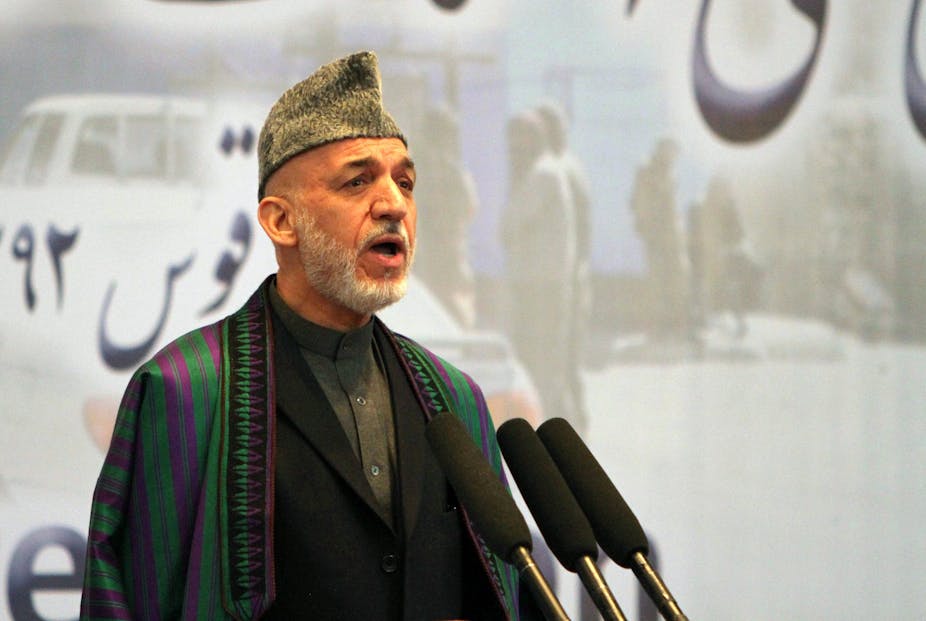Once in a while, a book comes along that forces you to rethink some basic assumptions. I had come to believe that corruption didn’t really matter that much because economic growth seemed to happen anyway.
In some circumstances, it seemed corruption might even have a functional purpose. China was the quintessential exemplar of this possibility. Having read Thieves of State – Why Corruption Threatens Global Security by Sarah Chayes, I can now see how complacent and ill-informed some of those assumptions actually were.
Thieves of State has two great merits over and above its important central thesis about why corruption threatens global security. First, much of the analysis is based on first-hand observations of the pernicious impact of corruption in pivotally important states such as Afghanistan.
Second, Chayes writes with a journalistic eye for detail that enlivens what might otherwise be a worthy but unread scholarly treatise. The book ought to be read and Chayes’ accessible prose ensures it will be.
Perhaps the most startling claim Chayes makes is not simply that corruption can become a security issue, but that it can directly contribute to the growth of the very forces the world’s security agencies are desperately trying to contain and combat. Exhibit A in this context is Afghanistan. It looks no more secure now than it did when the US and its allies first began trying to remake the country in the aftermath of September 11.
Chayes argues that the principal problem is the failure to understand cause and effect. She persuasively claims that recognising the sequence of events is key. Western officials in Afghanistan and elsewhere have been preoccupied with using the military to establish security as a precondition for the development of “good governance”. By contrast, Chayes contends that:
Poor governance caused insecurity.
The long-suffering majority of the Afghan population is continually caught between the Taliban and a government that, under the leadership of former president Hamid Karzai in particular, was little more than a “vertically integrated criminal organisation”.

Crucially, and counter-intuitively, the direction of corrupt activities and money was from the bottom up. This was not a patronage network, as such, but one in which subordinate officials had to pay off the Karzai kleptocracy if they wanted to keep their own privileged and potentially lucrative positions.
From the perspective of a ruling elite with little interest in anything other than self-enrichment, this was, therefore, anything but a case of state failure. On the contrary, “the state” was fulfilling its primary purpose as far as those who were at its top were concerned. The disheartening impact on ordinary citizens confronted with endless demands for bribes to accomplish the most basic of everyday tasks is not difficult to imagine.
Unfortunately, while Afghanistan’s problems may be extreme, they are far from unique.
It is no coincidence that what now looks like the stillborn Arab Spring was triggered by the self-immolation of a humble trader driven to despair by the relentless predation of corrupt officials. Tunisia, along with Egypt, Uzbekistan and Nigeria, are the other case studies that form the richly illustrated, albeit rather depressing, core of the book.
The description of resource-rich Nigeria’s descent into increasing chaos and corruption is especially sobering. And yet, the book should be essential reading for well-intentioned policymakers and international development agencies everywhere. Loathsome, barbaric and medieval though we may find Boko Haram, for example, the reality is that for too many Nigerians they are no worse and possibly even better than the hopelessly corrupt government of Goodluck Jonathan and his rapacious predecessors.
The likes of Boko Haram may actually serve a useful purpose for governments in places such as Nigeria and Egypt – to say nothing of their supporters in the “international community”. As Chayes points out:
Entrenched kleptocracies may find it simpler to face off against violent extremists, who terrify their populations and the international community alike, and who can be killed as enemies, than to confront political or economic movements calling for deep-seated government reform.
It is easy to be wise after the event, but the great nation-building agenda in Afghanistan and Iraq always looked rather fanciful and wildly at odds with the historical record. The urge to “do something” may have been understandable but the failure to confront reality on the ground almost guaranteed failure. Geopolitics in the form of CIA meddling and its active support of the Karzai clan meant that even the best of intentions were unlikely to have an impact.
Whether “the West” should continue interfering in the affairs of supposedly sovereign states is moot. Neither side of the debate has a monopoly of compelling arguments. However, what Chayes’ book does suggest is that there is little to be gained from propping up corrupt governments, no matter how compelling the geopolitical logic may be.
Even the best-laid plans will come to naught if their authors do not recognise what is happening on the ground. Failing to ensure security at that level almost guarantees it will remain elusive further up the geopolitical food chain.

